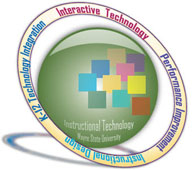 As I mentioned a few weeks ago in IT6230 – Internet In The Classroom, I will be using this blog as a way to provide discussion prompts for students in my IT6230 course (Internet in the Classroom).
As I mentioned a few weeks ago in IT6230 – Internet In The Classroom, I will be using this blog as a way to provide discussion prompts for students in my IT6230 course (Internet in the Classroom).
For your final blog entry for IT6230 I want you to become familiar with political aspects of virtual schooling by reading the article entitled “Mich. floats online learning requirement: State could be first to insist on virtual instruction as a condition for graduation”, which appeared over four years ago in eSchool News, below.
Then, review the following blog entries that I have posted concerning the debate over full-time K-12 online learning in Michigan last year.
- Michigan – Senate Bill 619 (my testimony before the House Education Committee)
- More On Michigan Senate Bill 619
- Even More On Michigan Senate Bill 619
- Still Talking Michigan Senate Bill 619
- The Beginning Of The End On Senate Bill 619
- Cyber Charter Schools & Dual Enrollment Bills Moving
- Early Results For Michigan Cyber Charter Schools
- Why Do Cyber Charter Proponents Lie?
Finally, while much of this has already been decided in Michigan, many other states are still grappling with these issues (see AJC Is Looking At Online Learning In Georgia).
Once you have completed these readings and using them, in addition to what you have recently discovered about virtual schooling, imagine you are a teacher in one of the states deciding whether to make K-12 online learning a graduation requirement for all students and your legislator has contacted you for your thoughts on this legislation as he/she prepares for the debate. Your task is to write a 100-200 word response to your legislator expressing and most importantly, supporting, your view on this legislation.
Your own response to this prompt should be posted by the end of the day on Friday, 26 April. There is no requirement for you to comment on the blog of your fellow students, although it is always encouraged.
If you are not a student in my IT6230 course but would like to participate in this discussion, please leave a comment below.
Mich. floats online learning requirement
State could be first to insist on virtual instruction as a condition for graduationFrom eSchool News staff and wire service reports
February 10, 2006A pioneering proposal now before the Michigan state legislature would make Michigan the first state in the country to require students to experience some sort of online instruction before they graduate from high school.
Advocates for virtual instruction say that if the plan is approved, Michigan likely will set a precedent for other states to follow as more schools begin to experiment with the benefits of online learning.
The online learning mandate is part of larger piece of legislation designed to ratchet up high school graduation requirements across the state. Until now, Michigan students have been required only to take a civics course to graduate. The new proposal would require math, science, and a foreign language in addition to some form of online instruction.
The idea for the virtual learning requirement reportedly came from a report produced by former State Superintendent of Public Instruction Tom Watkins in September. Watkins, who published the report “Exploring E-Learning Reforms for Michigan: The New Education (R)evolution” while on sabbatical from Michigan’s Wayne State University, recommended that every school in the state adopt some form of eLearning as a means of extending course options and providing new ways to engage struggling students. Susan Patrick, executive director of the North American Council for Online Learning and former head of the U.S. Department of Education’s Office of Educational Technology, called Michigan’s proposal “a bold plan” to foster a culture of lifelong learning and more readily prepare students for the challenges of an increasingly global economy.
“Michigan [officials have] realized that they have an industrial economy–they spawned the auto industry–but they face many of the challenges that other states face in making the transition to a more knowledge-based economy,” Patrick said She added, “I think the recommendation is terrific–and I think you are going to see more states following suit.” There already is strong support for online instruction in Michigan. At the Michigan Virtual University, enrollment in its Michigan Virtual High School program has grown from 100 students in 1999, the program’s first year, to 5,959 students during the 2004-05 school year, according to the Detroit Free Press.
The state’s online learning proposal is “probably one of the most forward-thinking educational strategies I’ve seen in a long time,” said Jamey Fitzpatrick, president of the nonprofit Michigan Virtual University. “It’s very exciting to see our policy makers engaged in the debate.”
Even if the measure doesn’t pass, he said, the fact that lawmakers were at least willing to entertain the idea proves that virtual instruction is growing in importance. The new graduation requirements were ratified by the state board of education in December and now stand before the state legislature.
Although no deadline has been set for approval, the measure so far has met with little opposition and appears to be on a “fast track” through the legislature, Fitzpatrick said. One item of concern is whether Michigan’s schools have the necessary infrastructure to support the online learning requirement.
In January, state House Republicans introduced a bill that would delay the start of the online mandate until the state board of education has determined that all high school students have equal access to computers and the internet, the Free Press reported.
But flexibility written into the plan’s requirement could ease lawmakers’ concerns. The measure says students can fulfill the mandate by having at least one “online learning experience.” This could include enrolling in an online course through the Michigan Virtual High School program, or simply taking an online test-preparation course or using electronic career-development software.
Supporters of the plan say this flexibility is one of its strengths.
“The last thing anyone wants to see is a cookie-cutter approach to education,” Fitzpatrick said.
Proponents are optimistic the bill will be approved by March so the new requirements can be in place for the graduating class of 2010, Fitzpatrick added.Links:
Michigan Virtual University
http://www.mivu.orgNorth American Council for Online Learning
http://www.nacol.org
(note: now International Council for K-12 Online Learning – http://www.inacol.org)Watkins’ report
http://www.coe.wayne.edu/e-learningreport.pdf
In case you are wondering, the readings for this week are:
Barbour, M. K. (2011). The promise and the reality: Exploring virtual schooling in rural jurisdictions. Education in Rural Australia, 21(1), 1-20.
Barbour, M. K., & Reeves, T. C. (2009). The reality of virtual schools: A review of the literature. Computers and Education, 52(2), 402-416.






 12 Unique Blogs Are Written By Professors
12 Unique Blogs Are Written By Professors